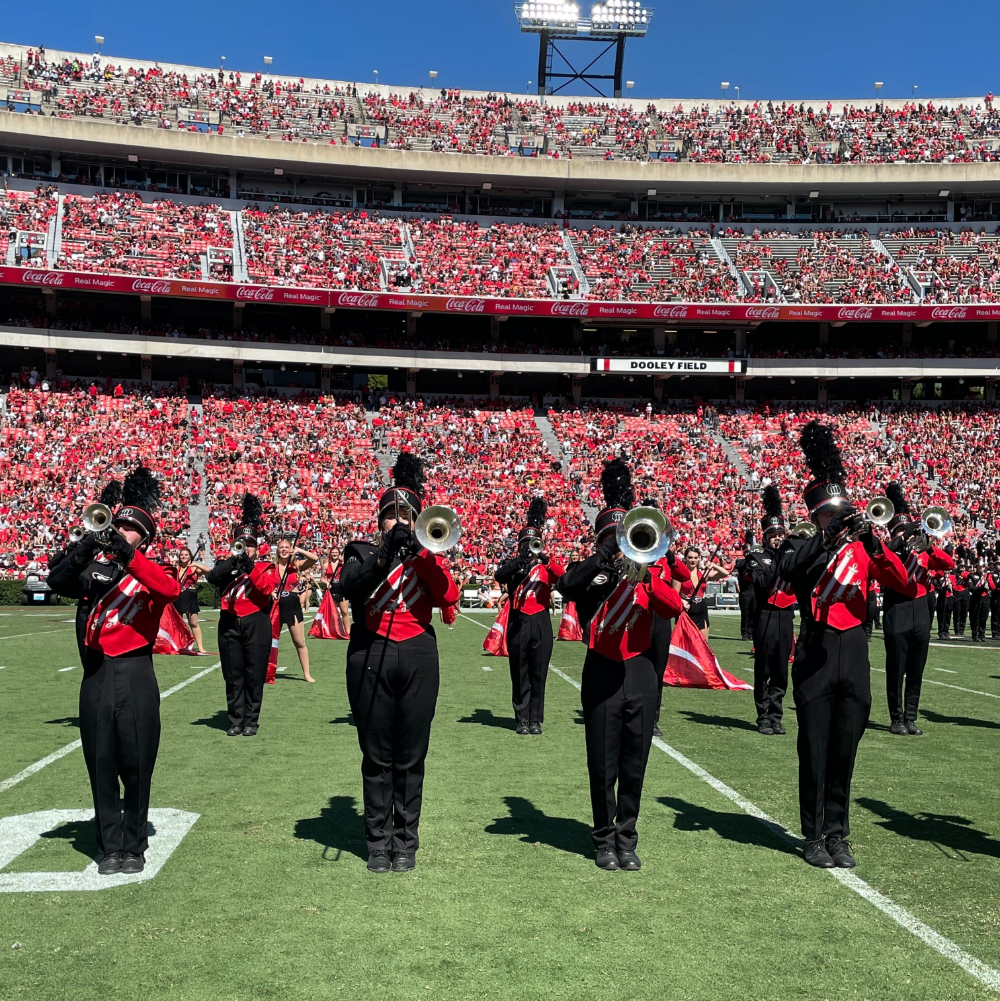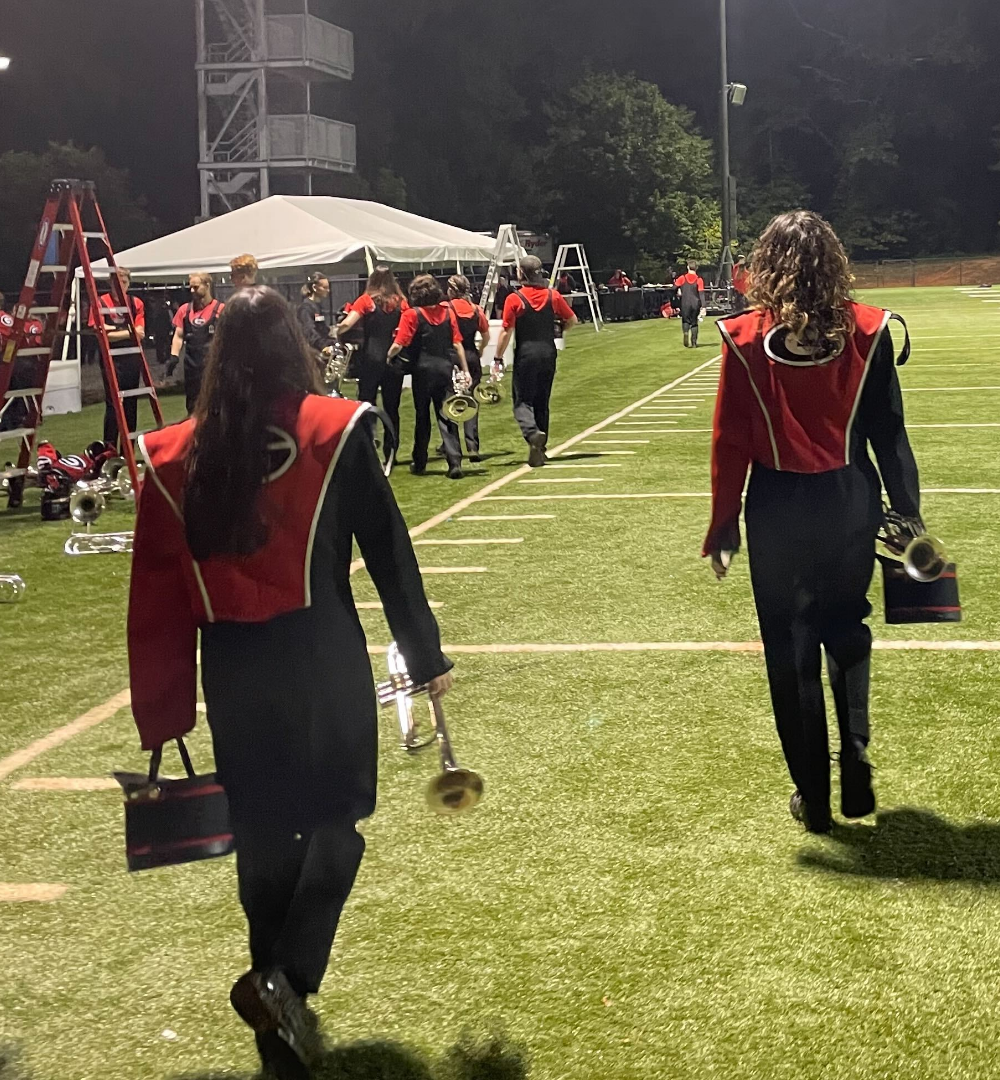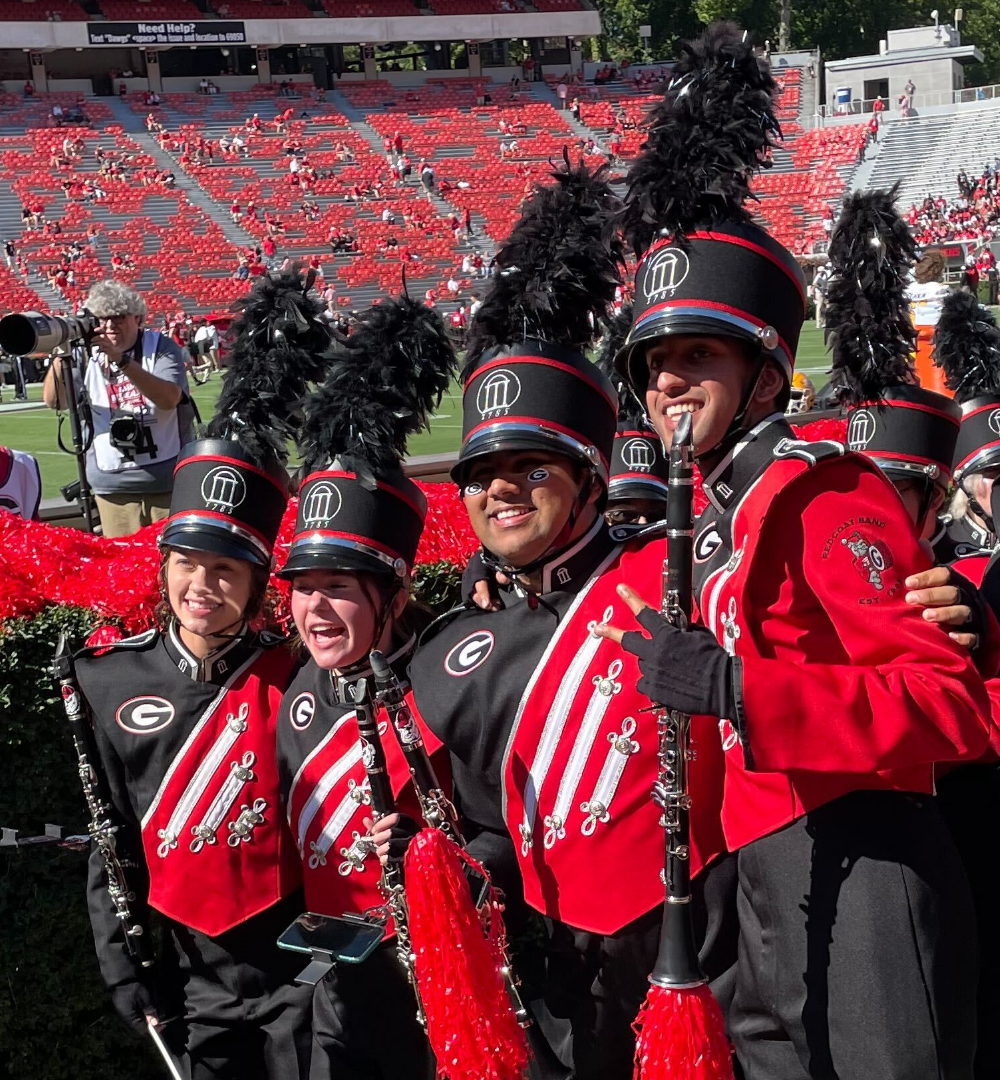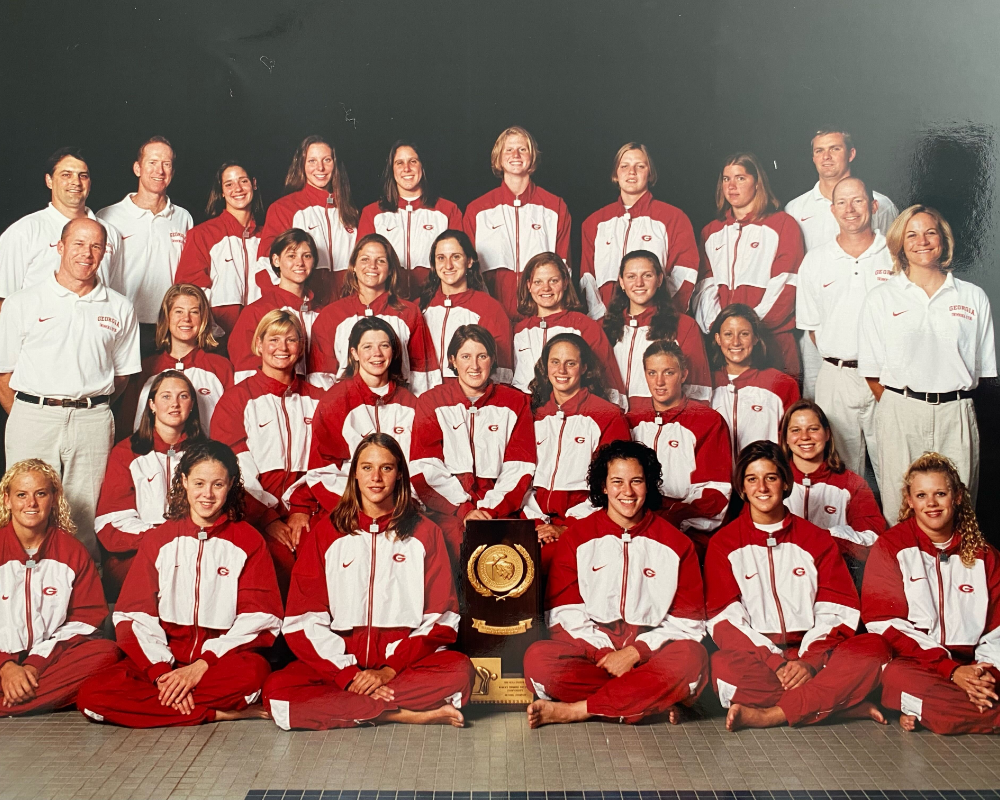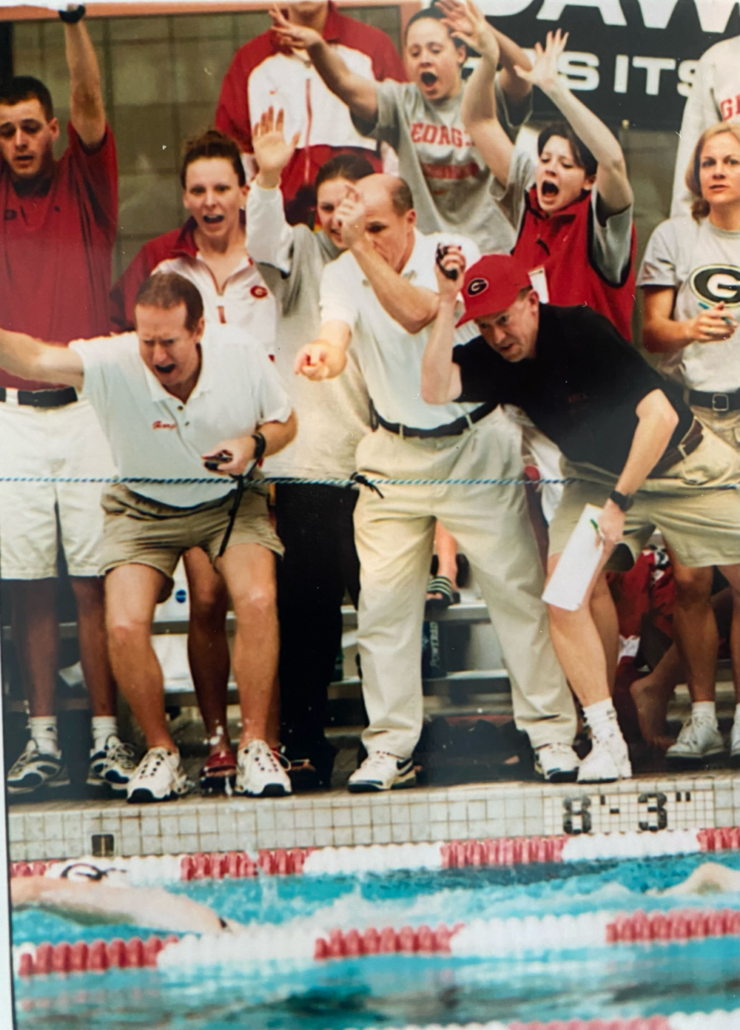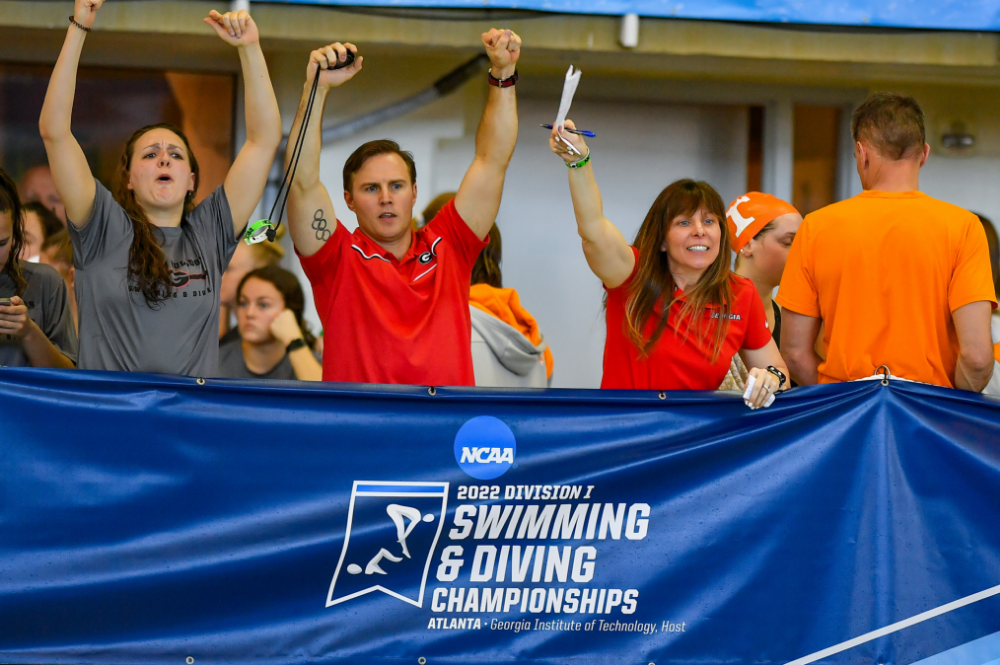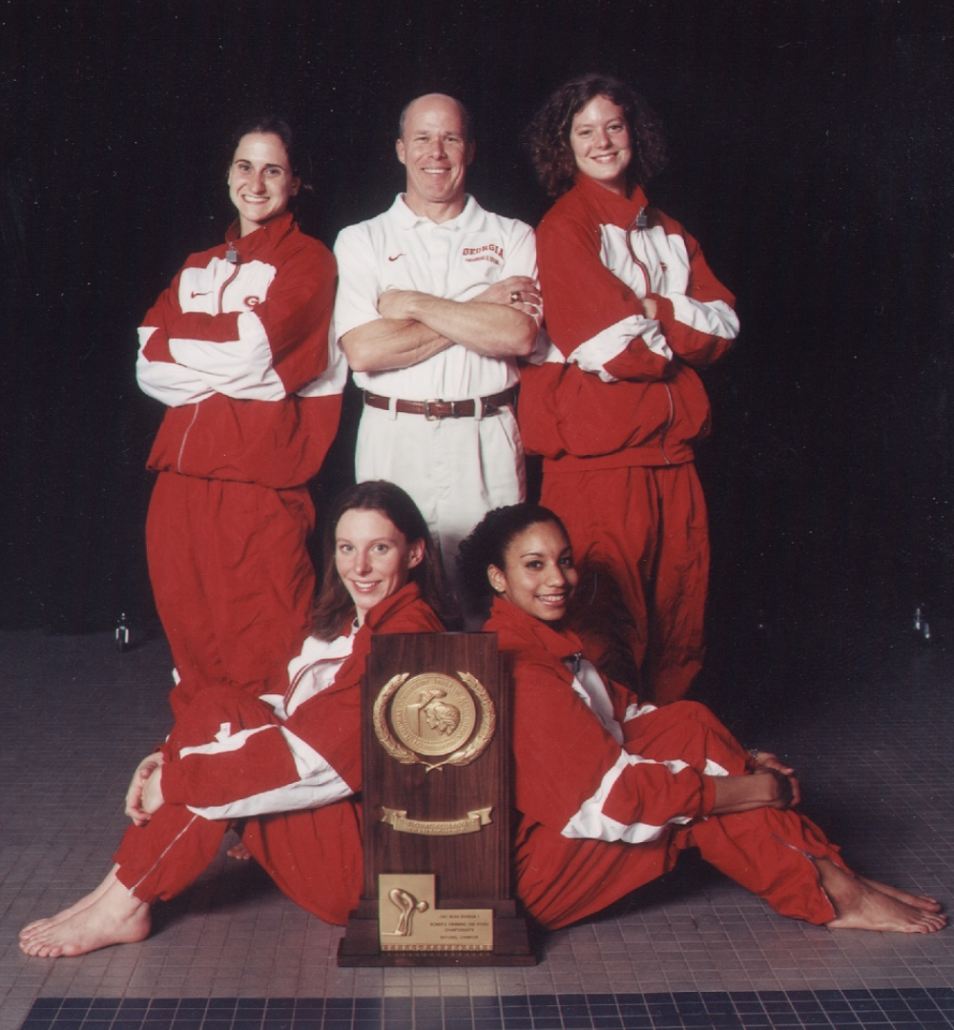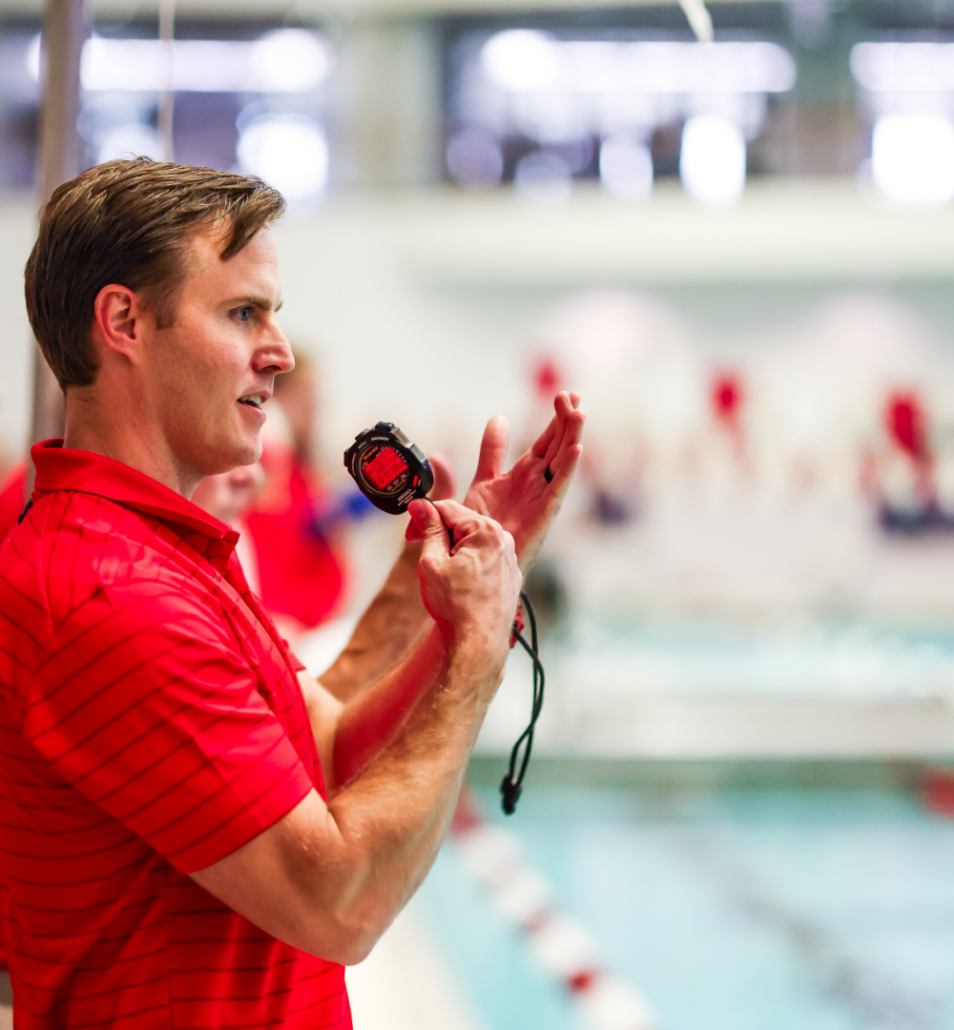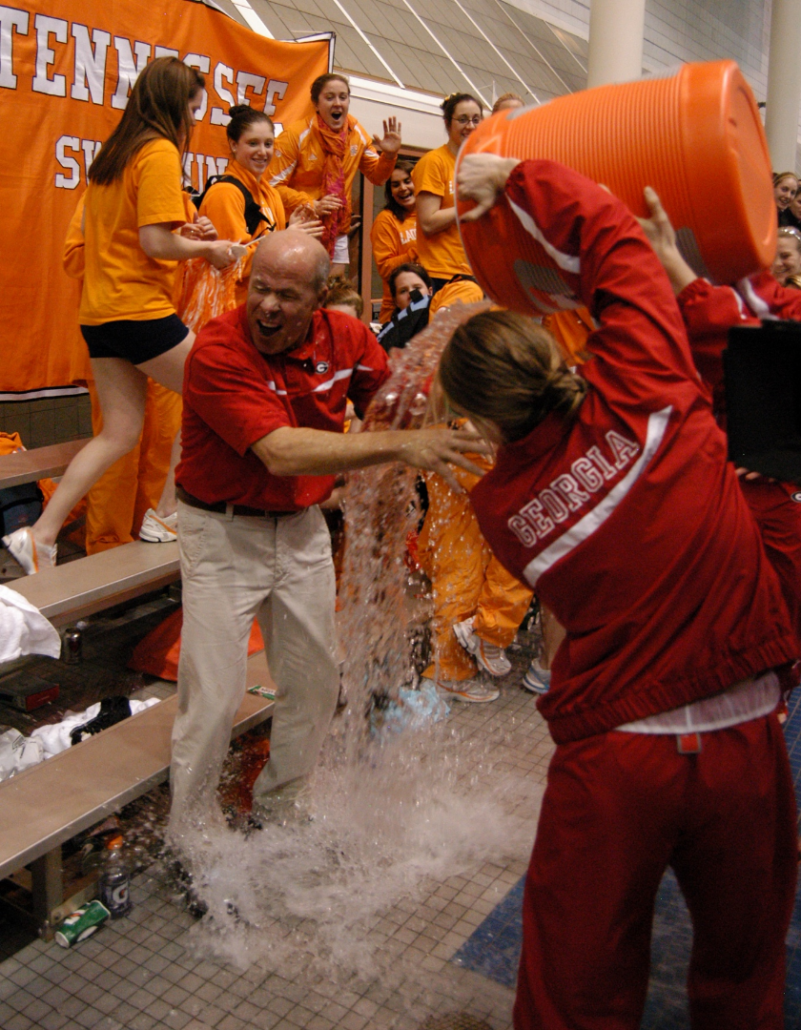Somewhere, there’s a swim coach that swam for Jack Bauerle at the University of Georgia.
Actually, there’s more than a few places where this is the case.
In June, Jack Bauerle, longtime head coach of UGA’s men’s and women’s swimming and diving programs, announced his retirement. Bauerle’s time with the University of Georgia spanned over 50 years, beginning with his undergraduate years as an athlete on campus and ending after 46 years as a coach—43 of which were spent as a head coach.
Bauerle’s teams won SEC and NCAA championships, he coached Olympic gold medalists and NCAA Woman of the Year award recipients, and he was the head coach for the U.S. women’s team at the 2008 Beijing Olympic Games—and this list doesn’t even scratch the surface of his accomplishments. Bauerle’s list of accolades is extensive, but he is even more well known for his dedication and passion for UGA, the sport of swimming, and his athletes.
While Bauerle’s retirement means that he’ll be seen around the pool deck less, his influence can still be felt across the country through the network of his former swimmers who went on to be coaches themselves. At every level, you can find a coach—from age group to NCAA Division I—who was coached by Bauerle and is now leaving their own mark on the swimming world.
Coast to Coast
UGA Swimming & Diving won its first NCAA women’s team championship in 1999 with Bauerle at the helm–a moment which has become a cornerstone memory for Julie de Fabrique (BSFCS ’99), who was a senior at the time. The win was the first of seven national titles for Bauerle’s women’s program, with the most recent coming in 2016.
de Fabrique recalls falling in love with UGA during her official visit in high school. She recorded an impressive four years as a Bulldog, including winning SEC titles and ending her collegiate career with an individual NCAA title in the 1650-yard freestyle. When reflecting on her time swimming for the Bulldogs, de Fabrique remembers the way Bauerle believed in his athletes in and out of the pool, constantly encouraging them to give their best at practice and in the classroom.
de Fabrique is now a head age group coach in her home state of California at San Clemente Aquatics, but she wasn’t always interested in becoming a coach. It wasn’t until nine years ago, when her husband volunteered her to coach a local club team, that she began her first official coaching role. As a coach, de Fabrique keeps in mind the many things she learned from Bauerle, from the way he structured practice to the way he motivated his athletes—things she feels fortunate to be able to pass on to her swimmers today.
“I feel fortunate to have been a part of this program and to share that experience with those who I coach now.”
– Julie de Fabrique (BSFCS ’99)
Coaching isn’t the only way de Fabrique is able to pay it forward to the next generation of swimmers. Recently, she had the opportunity to return to Athens and share her love for the University with her family. She even stopped by Gabrielsen Natatorium on her visit to share her story with the current women’s team.
Homegrown
Bauerle’s influence doesn’t ring any clearer than right here at the University of Georgia.
Following the announcement of Bauerle’s retirement, UGA Athletics named Stefanie Williams Moreno (BSED ’03) women’s swimming and diving head coach and Neil Versfeld (BSFCS ’10) men’s swimming and diving head coach. Both had accomplished college careers at UGA under Bauerle, each accruing SEC and NCAA championships among numerous other accolades.
Williams Moreno knew she wanted to be a swim coach as soon as her time as a collegiate swimmer came to a close, thanks to her experience at UGA—something she strives to replicate for her team.
“My mission has been to provide an environment for success like the one I experienced at the University of Georgia.”
– Stefanie Williams Moreno (BSED ’03), Women’s Swimming and Diving Head Coach
Versfeld represented South Africa in the 2008 Beijing Olympics—the same year Bauerle served as a head coach for the United States—and after an impressive career as an athlete, his passion for the sport drove him to pursue coaching in 2013.
“Words cannot describe how blessed I am to have this opportunity to give back to this University and the swimming and diving program that gave me so much.”
– Neil Versfeld (BSFCS ’10), Men’s Swimming & Diving Head Coach
For Versfeld and Williams Moreno, the opportunity to be a head coach at UGA is a dream come true. As they continue the legacy that Jack Bauerle built, they will also strive to emulate a practice Bauerle implemented during his years at UGA: looking beyond the pool.
“Jack has an incredible ability to connect with his swimmers as people,” says Neil Versfeld.
Williams Moreno agrees: “What stands out to me is Jack always understood the bigger picture. Everyone is more than a swimmer; one day, their swimming career will end.”
